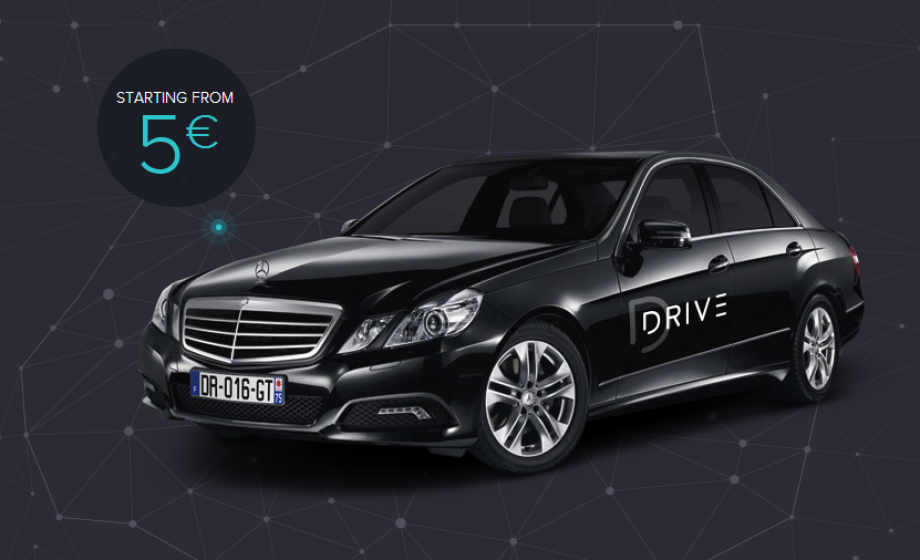
Earlier this week, Drive, a smartphone chauffeur service, announced it had raised $2 Million; Rude Baguette has learned that two of its investors include Olma Capital & Singularity Holdings. The fundraising comes after the service launched its fleet of German Mercedes last year, seeing “thousands of rides” in the first months of its launch. Founded by Maxime Bourdon, Adrien Touati & Alexandre Azoulay, also counts a number of unnamed entrepreneurs among its investors. Touati, a business associate of Xavier Niel, was previously referred to as the French Mark Zuckerberg – I’m not sure how much the metaphor lines up, if only for the fact that NIel is often referred to as the French Steve Jobs (a relatively apt title), and everyone knows that Zuckerberg and Jobs didn’t work together.
Drive’s fundraising announcement comes just days after the “15-minute law,” which requires chauffeur apps like Drive to wait 15 minutes to pick up, has taken effect. One worrying factor about Drive’s positioning is the increasing amount of competition in Paris alone, from Uber to Snapcar, LeCab to Chauffeur Privé, not to mention apps to help licensed taxis like Hailo, mytaxi & Taxibeat; however, Drive’s general manager Maxime Bourdon had a few things to say about that:
Uber is charging a premium for a commoditized service without controlling quality of drivers, cars anymore. The overall quality of uber is going down the drain. Convenience will not be enough for them to charge a premium price. This is why they have a hard time in Europe (Paris and London). Quality is valued by clients in Europe.
Given Uber’s weekly revenue (figures were leaked the public just months ago), one could argue that, whether or not Uber is doing well in Paris (France’s General Manager Pierre-Dimitry Gore-Coty suggested the company is profitable in its Paris activity as of last year), Uber can afford to operate at a loss in some of its markets – a luxury that Drive may not have.
Still, there is a sense that, while Uber was initially a luxury service for some, it has been for many a simple and cost-effective alternatve to trying to hail a taxi -especially in Paris, where Uber’s founder says he first had the idea for an alternative to taxis.
Bourdon also says that many of the chauffeur startups “have had a hard time finding their position in the market;” though one could potentially argue the same for Drive.
Still, Drive seems to have at least an ambitious attitude about its service; they are already looking at other major cities, and, while mind share will be an uphill battle, if they can offer a high quality service at a “commodity” privce, then perhaps the race to the bottom has finally begun for Chauffeur apps.

